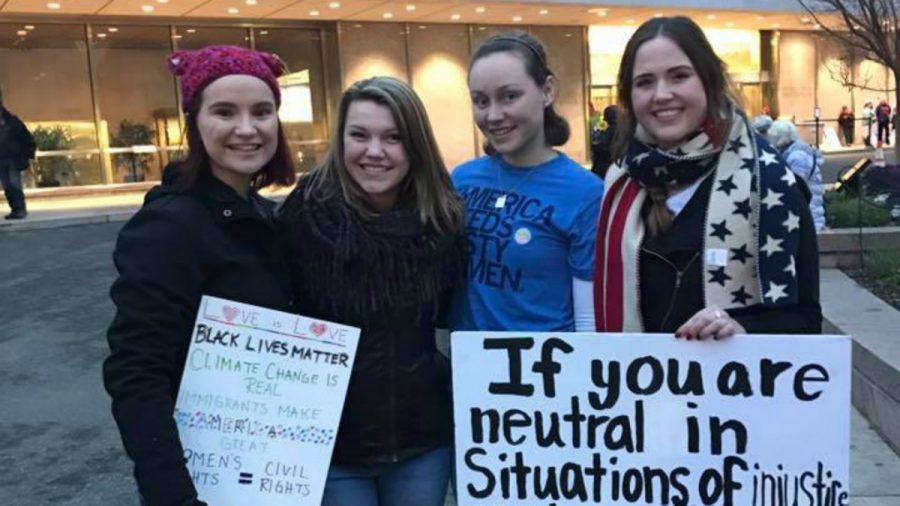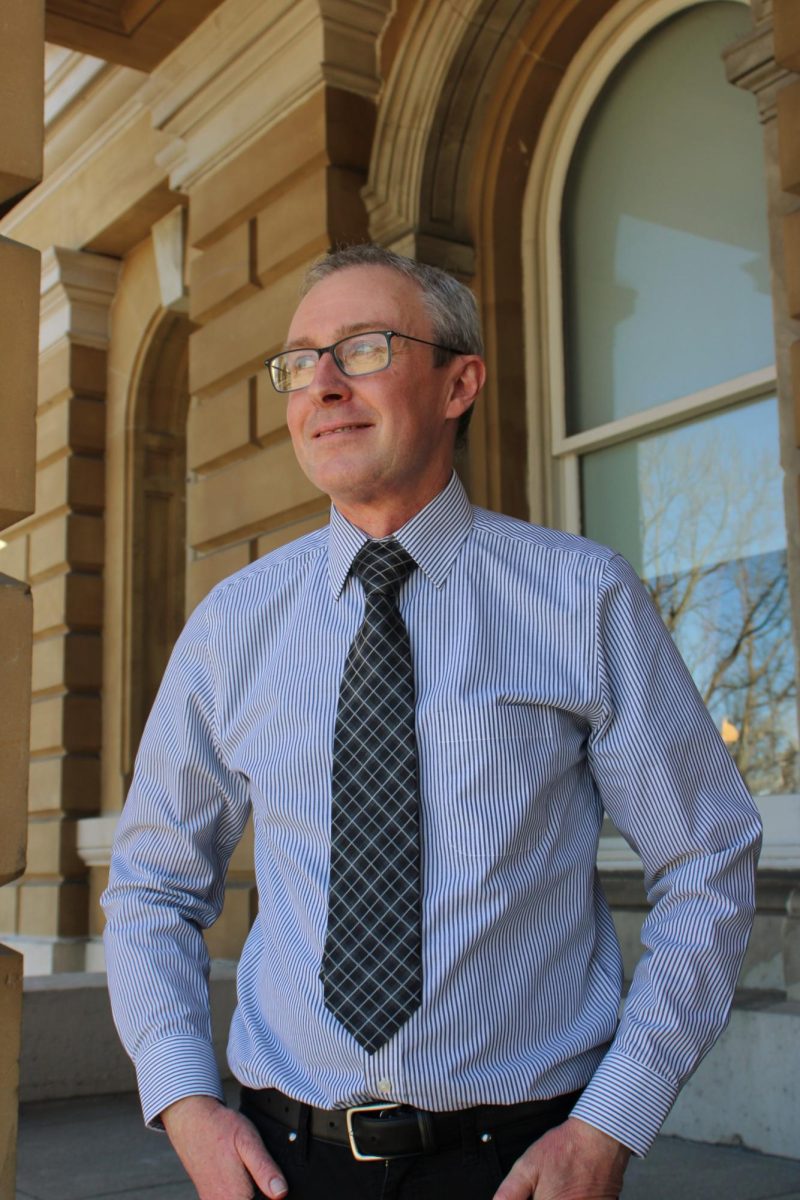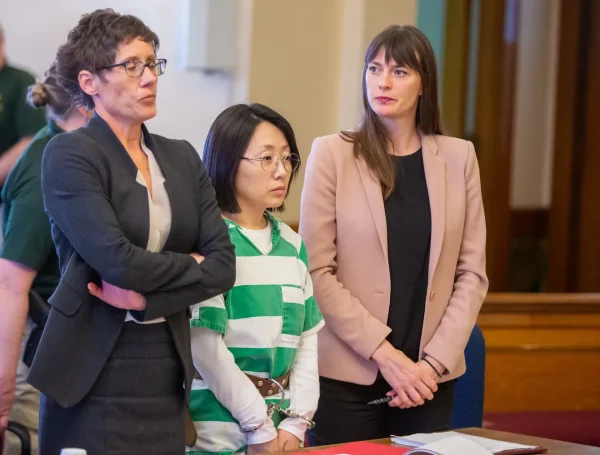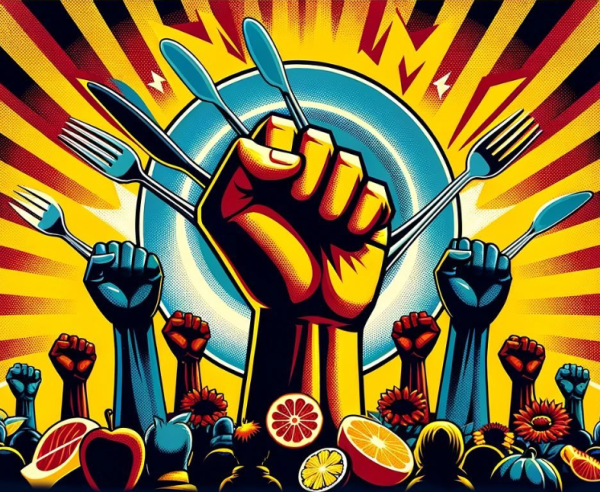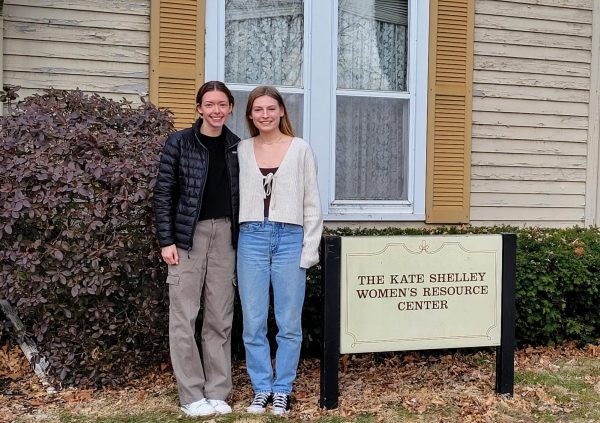Students join worldwide protests, march for women’s rights
January 22, 2017
DES MOINES, Iowa — On Saturday, the day after President Donald Trump’s inauguration, an estimated 500,000 people gathered in Washington, D.C., to march in protest of Trump’s presidential victory — nearly twice as many participants than expected, reported The Washington Post.
Sophomore Rachel Riley was part of the massive march, believed to be one of the largest ever on Washington with around 1.3 million supporters, and said it was a symbol of solidarity.
“I don’t look at it as a protest. It’s a message,” she said.
“I saw people proudly displaying who they are, which was empowering,” junior Olivia Anderson said. “They had no option to hide who they are here. I can’t use any other words to describe the feeling except empowering.”
Anderson, Riley and junior Mandy Brown said some of the things that stood out to them most were the conversations that they had with other women, as well as the messages of people’s signs.
“I enjoyed striking meaningful conversation with stranger after stranger,” Brown said. “I found it particularly meaningful to see so many experienced women out there, to feel an intangible exchange between earlier generations of female activists and younger generations.”
Anderson is also passionate about immigration rights and one of her favorite signs read, “No human is illegal.”
“Respect existence or expect resistance” was another message displayed numerous times throughout the march. Women and men of all ages and all backgrounds attended the marches to show their support.
One of Riley’s favorite moments was the feeling of marching at a “snail’s pace” because people were lined together, touching shoulder to shoulder. While marching, she said, a woman started playing music and everyone around them were dancing and having fun.
“People were excited,” she said.
Sophomore Audrey Kaus, accompanied by her mother, traveled 20 hours via charter bus to participate in the 2-mile march, which she said was worth the hassle.
“I think my favorite part was when I was in the middle of the crowd mid-protest, and I realized that this is me trying to make an impact on the world,” Kaus said. “And it was just a really powerful meaning because I know that we were successful. This event will be one for the books, and I was there.”
Across the nation, sister protests occurred to demonstrate support of the Women’s March, for those individuals that could not make it to Washington, D.C. Some of the largest sister marches were held in Boston, Chicago, New York, Los Angeles and Des Moines.
“One of the most powerful things today was seeing so many people actively supporting feminism at its best — intersectional, inclusive and actively ready to fight for all things that affect women,” said Allison Wolf, professor of philosophy at Simpson.
“I think the point of the Women’s March is to show support for all women, not just white or privileged women,” sophomore Liz Nimmo, co-founder of the feminist club at Simpson, said. “We need to take an intersectional approach.”
“Intersectionality is not just for women or white privileged women; it’s for all types of people who feel oppressed by systematic forms of oppression. It’s to advocate for all people,” Anderson added.
Riley said people need to recognize voices and need to be heard. People need to be considerate and listen to make change happen.
“We can’t do it if we’re divided,” she said. “I just think people are so scared of the label. Some people think it’s hard to break through the glass ceiling and adopt it as a form of equality.”
“Some people honestly think that oppression doesn’t exist because they haven’t experienced oppression,” Nimmo said.
With the events of the march winding down, emotions are still high, Riley said.
To continue empowering and sending the message, Anderson said people can run for public office and represent diverse amounts of interests, and to empower those people running for offices.
District of Columbia law enforcement officials announced they did not make a single march-related arrest during the Women’s March on Washington.
“The whole day felt peaceful and powerful,” Riley said.
Humans’ rights shouldn’t be ignored, Anderson said.
“There’s plenty of work to be done,” she said, “and we are a force to be reckoned with.”
The march in Des Moines saw around 26,000 people, organizers said, which is one of the largest rallies to come to the state.



